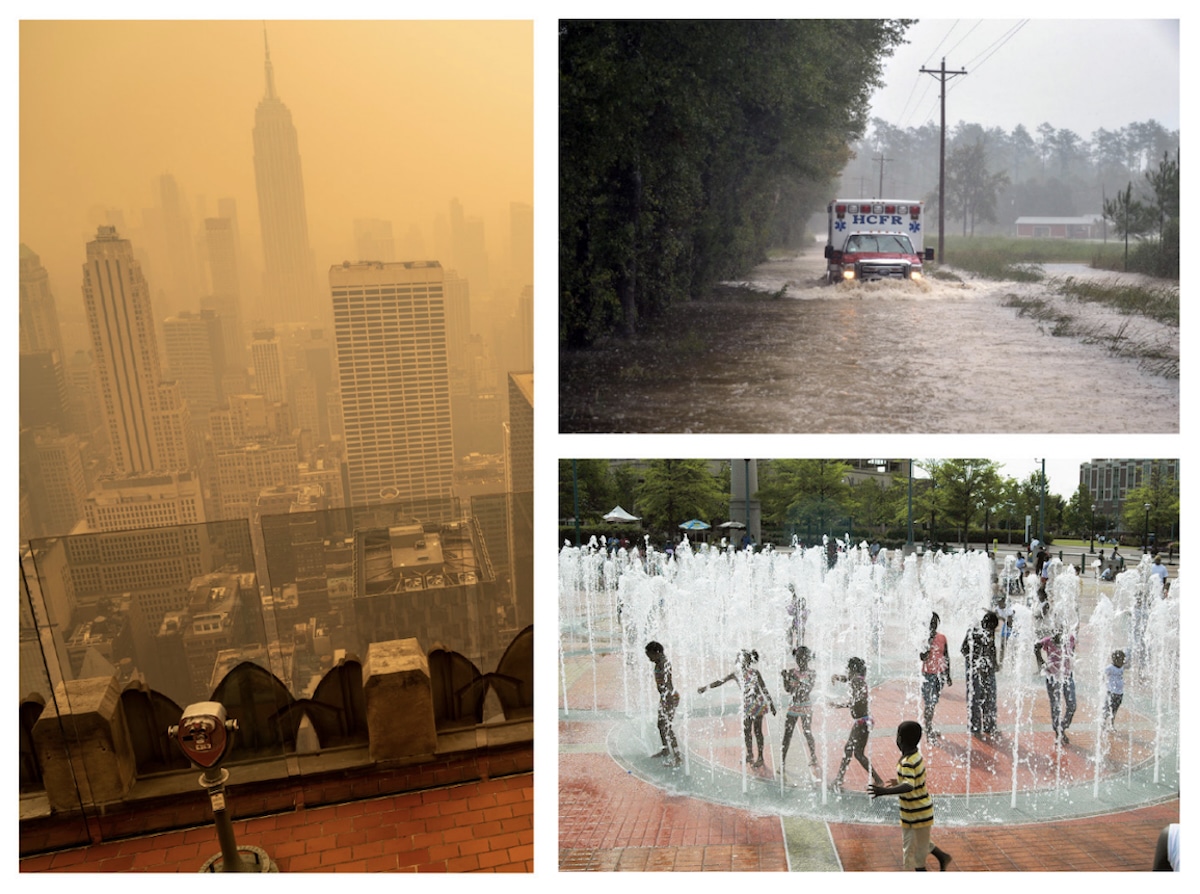New National Climate Assessment Warns of Worsening Impacts in U.S.

 Why you can trust us
Why you can trust us
Founded in 2005 as an Ohio-based environmental newspaper, EcoWatch is a digital platform dedicated to publishing quality, science-based content on environmental issues, causes, and solutions.
The U.S. has released its fifth National Climate Assessment report, which outlines how the country is addressing climate change, major climate risks and actions by region and how climate change is already impacting the country.
The report found that both new and existing risks are impacting every part of the U.S., while some regions may be perceiving short-term benefits. However, the long-term risks of climate change — including sea level rise, flooding, drought, and extreme heat — are expected to outweigh any brief benefits.
“Every increment of global warming leads to larger increases in temperature in many regions, including much of the United States,” the report explained. “At a [global warming level] of 2°C (3.6°F), the average temperature across the United States is very likely to increase between 4.4°F and 5.6°F (2.4°C and 3.1°C). For every additional 1°C of global warming, the average U.S. temperature is projected to increase by around 2.5°F (1.4 °C).”
Another major risk concerns how climate change will affect human health. Heat-related diseases and death, increasing geographic range for some types of infectious diseases, increasing exposure to poor air quality and worsening mental health outcomes are all health risks outlined in the assessment, which has a full chapter on health and an additional section on COVID-19 and climate change.
According to the U.S. Department of Health and Human Services, climate-related hazards, like extreme weather events, threaten human health and put a strain on health care systems. For instance, the 2019 Missouri River and North Central Flood blocked hospital access for those in need, increased exposure to pollutants and infectious diseases in the flood waters and led to $10 billion in damage.
The department noted that many health care facilities across the country are at risk of flooding, with hospitals at a 9.3% chance, nursing homes at 10.2% and pharmacies at 12.1%.
However, with emissions mitigation efforts, the U.S. could actually see health and economic benefits that outweigh the cost of implementing the efforts.
“Each metric ton of CO2 reduced is estimated to bring about health benefits in the U.S. that are valued between $8 to $430 (in 2022 dollars), mainly from avoided premature death,” the U.S. Department of Health and Human Services shared in a press release.
The report shares current mitigation efforts across the U.S. as well as additional mitigation and adaptation actions that can be taken, and notes that mitigation efforts to reduce greenhouse gases have increased in every region of the country since 2018.
But some of the impacts of worsening climate change are inevitable, the report warned. Because of past emissions, ocean surface temperatures and sea levels will continue rising, and even the most catastrophic outcomes of climate change can’t be ruled out.
Ultimately, the assessment explained that reaching net-zero emissions will be essential for curbing the worst impacts of climate change.
“If emissions do not fall rapidly, the risks of extreme weather, compound events, and other climate impacts will continue to grow,” the report authors wrote. “How much more the world warms depends on the choices societies make today. The future is in human hands.”
The U.S. currently has a target to reach net-zero emissions by 2050, including a goal to reduce emissions 50% to 52% compared to 2005 levels in 2030. However, Climate Action Tracker found that U.S. policies and targets are not in line to meet these targets. The group estimated that the U.S. is likely to reduce emissions by just 28% to 34% by 2030.
The Fifth National Climate Assessment was released by the U.S. Department of Health and Human Services, part of the U.S. Global Change Research Program (USGCRP). USGCRP led the report, which combines research and data from nearly 500 authors and 250 contributors from all 50 states, Guam, Puerto Rico, and the Virgin Islands.
Subscribe to get exclusive updates in our daily newsletter!
By signing up, you agree to the Terms of Use and Privacy Policy & to receive electronic communications from EcoWatch Media Group, which may include marketing promotions, advertisements and sponsored content.

 233k
233k  41k
41k  Subscribe
Subscribe 



